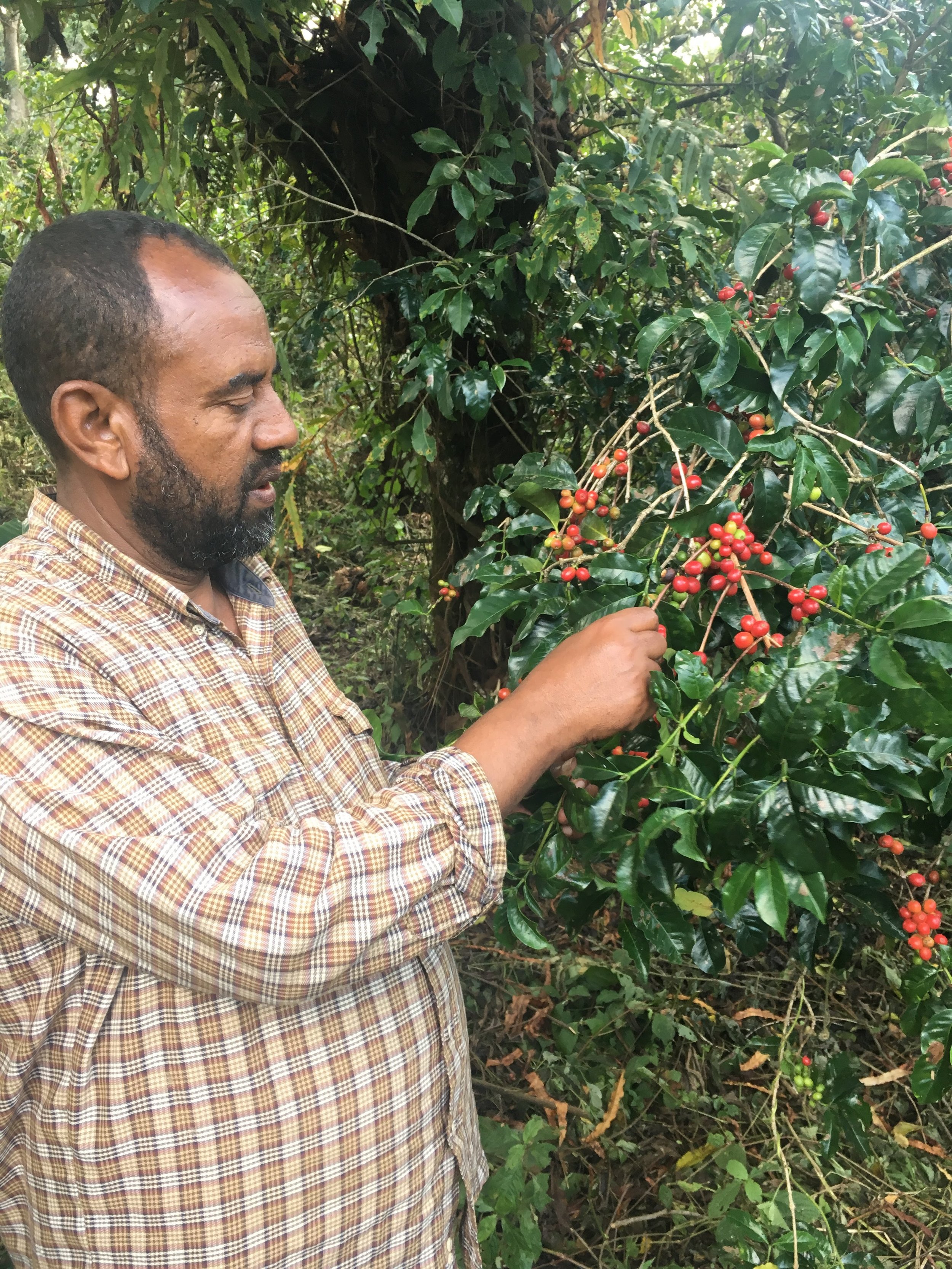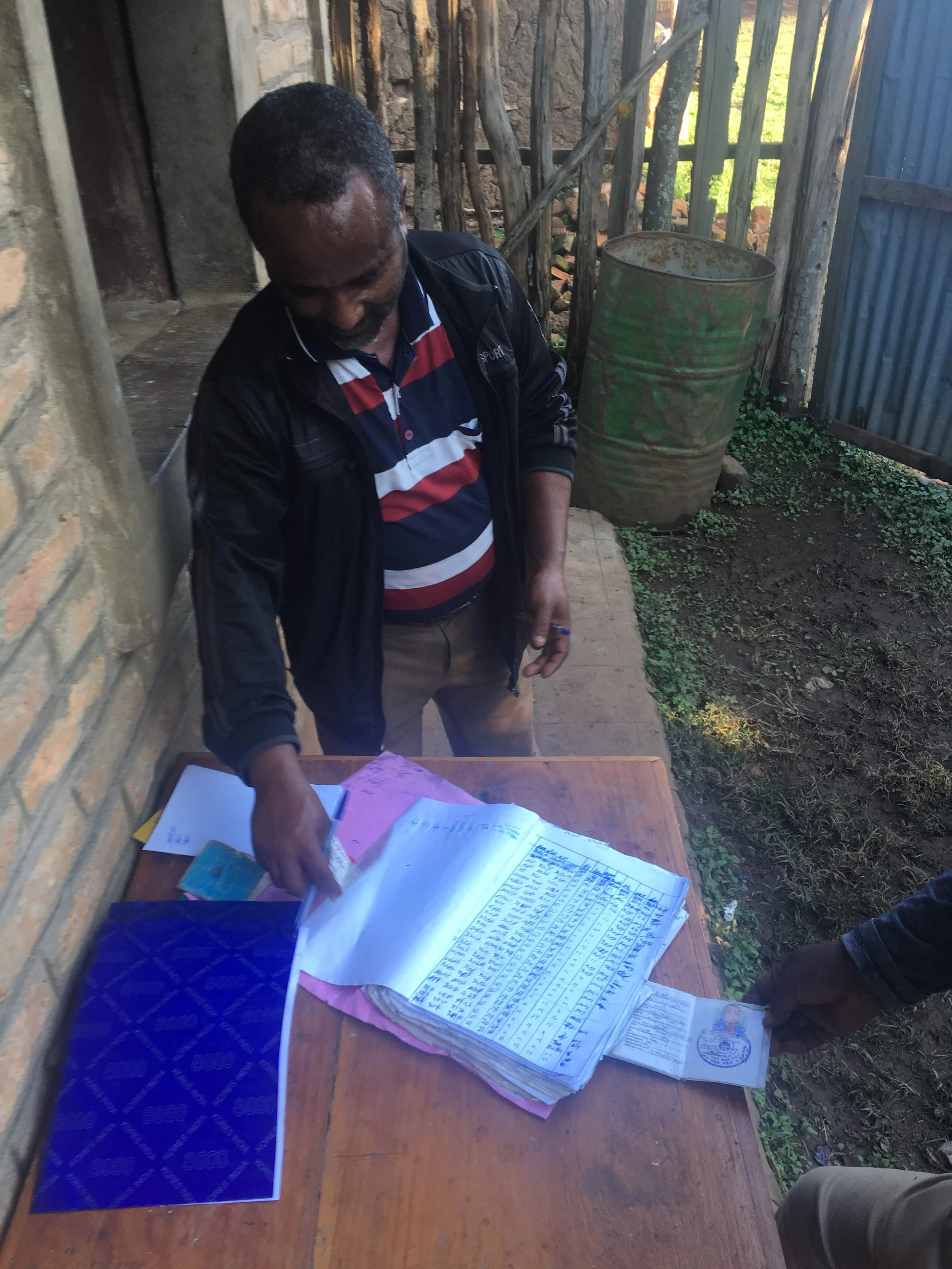paradise in the cradle of coffee
Jimma is known to specialty coffee as the birthplace of coffee, one of the best regions for coffee on Earth - but also one of the most unpredictable. So when Gidhe started working in this region and talking to farmers, he quickly standardised the farm’s processes to gain steady quality and start building a reputation of quality. Back then, there was not much at the farm, just native forest and heaps of potential…. Soon after he purchased his 360 hectares lot, he gathered with his neighbours and told them: "I am coming to this land to live with you, and I wish to work with you, to work together. If we work together and I am successful, I assure you will all be successful too. If I fail, we all fail. Will you accept me?" Somebody in the back of the room raised his hand and said: "Mr. Gidhe, that land you say is yours and that the government gave you belongs to my ancestors." Surprised, Gideh asked: "How many hectares do you say are yours?" "Thirty-seven," the farmer answered. Gideh nodded and, addressing the room, asked: "Is this true?" Everyone nodded. "Then that land is yours, and I will not touch it."
Today, Galeh is a sight to behold..Organic cherries ripen slowly and under the shade of the ancient trees. It has so many different microclimates that we taste differences between zones, notably Betella, Suki, and Sinsino. The cultivars planted in these microzones also vary: the agronomy team adapted them to the different shade, humidity and soil conditions. This results in a very complex anf floral cup, with notes of hazelnut that are typical to Galeh.
CULTIVARS
Local varieties selected on productivity, strength, and micro-region fit, called: 74165, 75227, 74140, 74110, 74112, and 5227. Limu Kossa is located in the highlands where the coffee arabica species evolved.
elevation
Sinsino: 2070 meters above sea level.
Suki: 1834 meters above sea level.
Betella: 1835 meters above sea level.
NOTABLE
One of the few coffees in the TSU assortment that comes from a native forest, and the only one that comes from the birthplace of coffee, Jimma. No inputs are used, all fertilisers come from within the land and are created on site.
PROCESSING
Cherries are hand-picked by seasonal pickers on the estate. On delivery, all cherries are pre-screened by controllers, after which lots are separated into the washed lots (early and midseason) and naturals (late season).
Fully washed: hand-picked, pre-sorted, floated, pulped, wet fermented for 12 hours, soaked and washed, dried on raised beds, and dry-milled all under the supervision of the farm owner, Giday.
Natural: fully ripe cherries are spread evenly on raised beds and turned every hour to prevent moulding, especially in the first few days. Sun-dried for at least 12 days.
TASTIFY™ CUPPING NOTES
Galeh washed grade 1 - 2024 landed cupping
-
The price you pay for Galeh’s washed and natural coffee p/kg. We agreed on this price directly with the farmers, disregarding the volatile US Coffee C price.
-
This includes the cost of farming, harvesting until it’s export quality. The farm gate for other coffees/cascaras from Limmu Kossa are as follows :
Limmu Kossa - Galeh estate lot - natural grade 1 : €4,86
Limmu Kossa - Galeh basic blend - natural grade 4 (BIO) : €3,36
Limmu Kossa - Galeh estate lot - washed cascara : €4,39 -
Limmu Kossa wears many ‘hats’ throughout the export process. As employers, they take care of their workers by giving them food, accommodation, taking care of their medical expenses, providing them with transport. As an estate, they have to invest in farm maintenance and also make a profit margin of 20% on their coffees. Finally they are also accountable for transporting the coffees from farms to Addis and exporting them to the Netherlands.
Limmu Kossa - Galeh estate lot - natural grade 1 : €1,82
Limmu Kossa - Galeh basic blend - natural grade 4 (BIO) : €1,44
Limmu Kossa - Galeh estate lot - washed cascara : €1,87 -
International shipping from Djibouti to Rotterdam, Netherlands. It is inclusive of freight, customs, insurance and warehousing costs. This also includes a €0,53 fee to our partner Abiy for helping us coordinate the entire export.
-
Average financing cost owed to (mostly social) lenders. This ensures immediate payment to the farmers when the coffee leaves the farm or port.
-
A standard TSU premium on all coffees designated exclusively to accelerate farmers’ own regenerative agriculture project.
-
This Side Up compensation for spending time and resources importing this coffee. Our work includes year-round contact with producers, managing export, shipping, import, warehousing, grading, sampling, finding and keeping roasting partners for Galeh. € 1,65* is typical This Side Up’s Model 1 markup but in this case since Gidhe has set up an importing company in the Netherlands, TSU margin won’t cover warehousing/storage for the coffees from Limmu Kossa. For a full overview of our modular margin construction, see the Trade Models page
Photo gallery
You may use these videos freely to promote Galeh’s coffee amongst your customers.
















